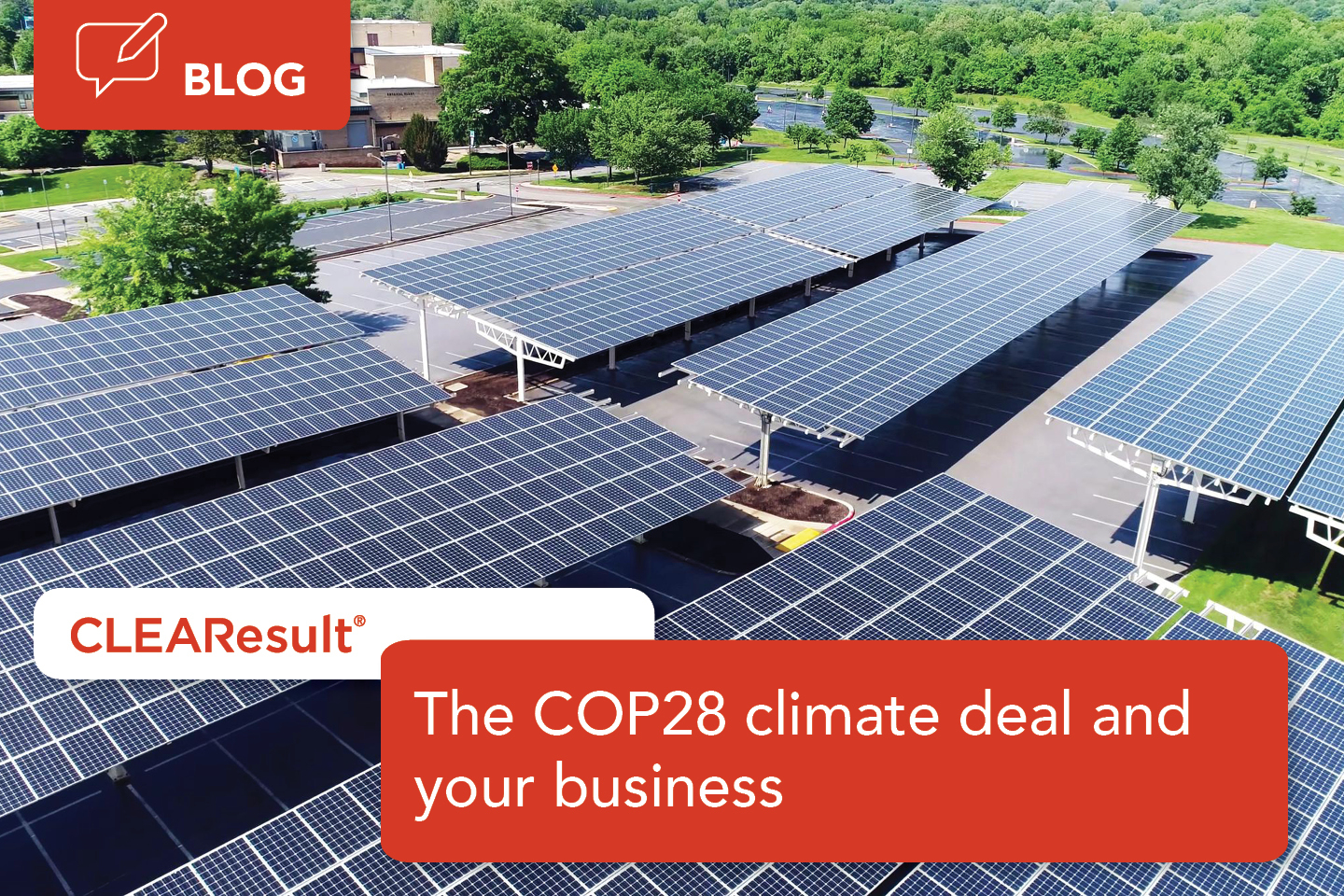The COP28 climate deal and your business

Leaders from 198 countries met at Conferences of the Parties (COP28) in Dubai earlier this month to discuss crucial actions needed to curb climate change. The resulting agreement broadly emphasizes the necessity for countries to begin “transitioning away from fossil fuels in energy systems, in a just, orderly and equitable manner, accelerating action in this critical decade, so as to achieve net zero by 2050 in keeping with the science.”
The final text of the agreement also includes more specific commitments that are highly relevant to businesses’ decarbonization decisions, including:
- Doubling the rate of energy efficiency improvements by 2030
- Tripling renewable energy capacity by 2030
- Accelerating the use of zero- and low-emission technology
Our recommendations for businesses
Companies, as well as governments, should address decarbonization in a methodical manner to save energy and lower their greenhouse gas (GHG) emissions. Here’s our advice on how to proceed:
1. Energy efficiency – This should always be considered first in the carbon reduction process to reduce the need for more costly measures. For most businesses, it makes sense to conduct an energy audit to determine which actions should be taken. Many low and no-cost options can be implemented initially to realize immediate savings and build momentum. Planning, prioritizing and scheduling additional measures will optimize savings over time.
2. Renewable energy – After addressing improvements to energy efficiency, operations and maintenance, businesses should explore their options for transitioning to clean energy. This may include installing solar, wind or other on-site power generation. For others, switching to a clean energy mix from their energy provider may be the best option.
3. Zero- and low-emission technology – Energy efficiency and electrification technologies are making significant strides, so it makes sense to re-evaluate replacement and upgrade decisions regularly based on the latest models available. It is important to look beyond the purchase price of equipment and consider ROI, maintenance and operating costs over the life of a product.
Additionally, the improved performance and availability of EV trucks, buses and construction vehicles are making fleet transition appealing to many businesses.
The decarbonization solutions listed above are all included in the sustainability services we offer to maximize energy savings while minimizing GHG emissions at facilities. Additionally, our rebate and incentive management services ensure that businesses are able to take full advantage of funding options available from the Inflation Reduction Act, state energy offices and other sources.
____________________________________
Learn more about our Decarbonization practice.
View our 2022 Sustainability Report.